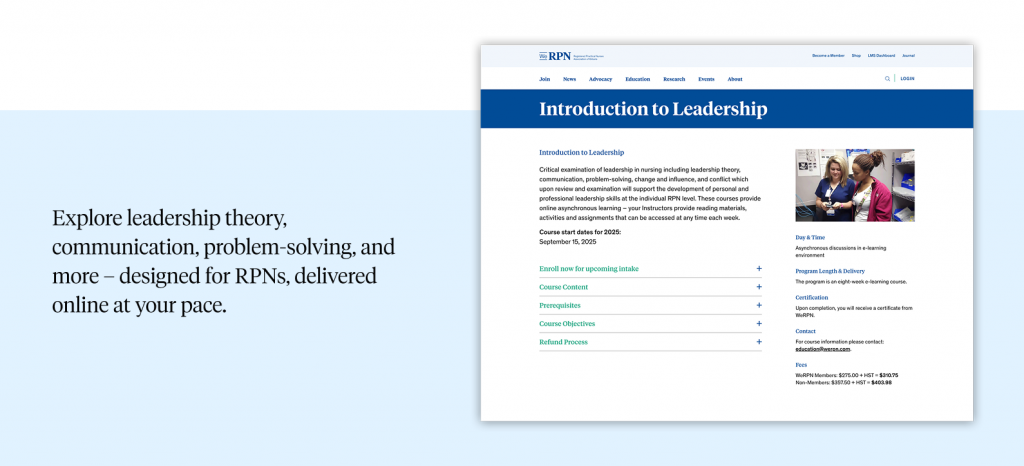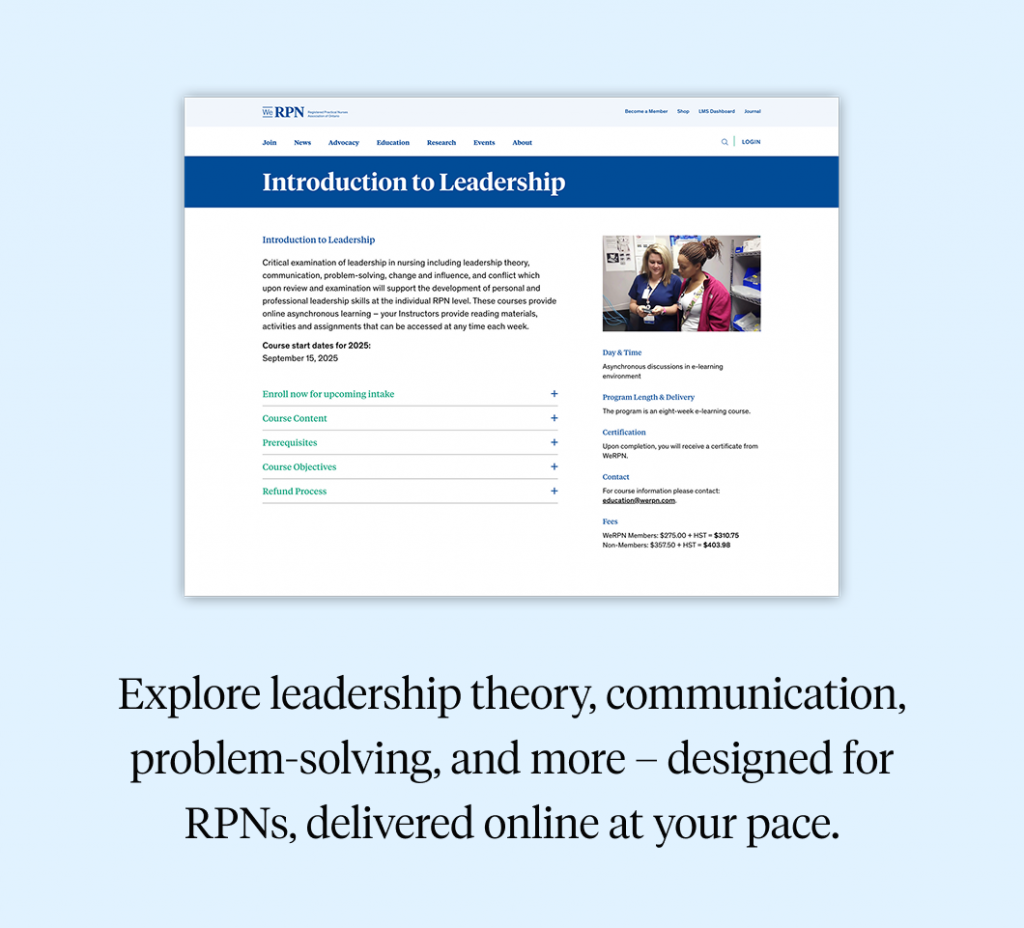For many Registered Practical Nurses (RPNs) in Ontario, career paths are not always linear. While some remain in the same role for decades, others find themselves seeking new challenges, exploring different specialties, or even pivoting to entirely new healthcare fields. Whether driven by burnout, personal experiences, or a desire for professional growth, changing jobs mid-career can be an exciting and daunting transition.
 RPNs often change career paths for a variety of reasons. Some seek new challenges to expand their skills or explore different healthcare settings, while others are inspired by personal experiences. Take Christopher Reilly, RPN, as an example. Christopher decided to specialize in mental health and addictions after experiencing personal loss and witnessing the rising prevalence of mental health issues in his community.
RPNs often change career paths for a variety of reasons. Some seek new challenges to expand their skills or explore different healthcare settings, while others are inspired by personal experiences. Take Christopher Reilly, RPN, as an example. Christopher decided to specialize in mental health and addictions after experiencing personal loss and witnessing the rising prevalence of mental health issues in his community.
For others, the desire for a better work-life balance leads to roles with more predictable schedules or reduced physical demands. Others pursue additional education to advance into leadership, teaching, or administrative positions.
 Blanche Durocher, RPN, is an accomplished academic and self-professed lifelong learner with a B.A. in Psychology and a Post-Baccalaureate Diploma in Management, along with her nursing designation. On her journey to becoming the inspiring leader she is today, Blanche gained experience across various sectors, including acute care and long-term care (LTC). After having her daughter, she transitioned to home and community care (HCC), drawn to the role’s flexibility.
Blanche Durocher, RPN, is an accomplished academic and self-professed lifelong learner with a B.A. in Psychology and a Post-Baccalaureate Diploma in Management, along with her nursing designation. On her journey to becoming the inspiring leader she is today, Blanche gained experience across various sectors, including acute care and long-term care (LTC). After having her daughter, she transitioned to home and community care (HCC), drawn to the role’s flexibility.
“I was able to take care of my daughter and go to work,” says Blanche. “Being in the community has let me be a hands-on parent and balance being a nurse and a mom; it allows me to be the best I can be in both of those worlds.”
Exploring new career avenues
RPNs have many career options beyond traditional bedside care, including:
Specializing in a new field
Mental health, palliative care, acute care, and community health are just a few pathways.
Education and training roles
Teaching future nurses or becoming a mentor.
Healthcare administration
Working as a care coordinator, policy advisor, or in quality improvement.
Alternative healthcare settings
Moving from hospitals to long-term care, clinics, or private practice.
Successfully transitioning to a new career begins with self-assessment. Reflect on your interests, strengths, and long-term goals to identify the path that best aligns with your aspirations. From there, consider enrolling in specialized courses, attending webinars, or obtaining certifications to build the skills needed for your desired role.
Betty Fehr, RPN, highly recommends identifying your goals and creating a plan to achieve them. After taking WeRPN’s Introduction to Leadership course, she realized she wanted to pursue teaching as an RPN.
“I was so shocked because I didn’t think there were any opportunities [to teach as an RPN],” says Betty. “And within a few months, I was teaching! That was a direct result of taking the Leadership training offered by WeRPN.”
WeRPN offers a variety of career resources to help you achieve your goals – from online courses that enhance your knowledge, skills, and marketability to information on continuing education programs that support career growth. Once you’ve made your plan, check out our job board to connect you with your dream role!
Networking is equally important – connecting with colleagues, mentors, and professional associations can offer valuable insights and open doors to new opportunities. Job shadowing can also provide a firsthand look at your chosen field, helping you make an informed decision before committing to the switch. Finally, when you’re ready to apply, tailor your resume and cover letter to emphasize transferable skills that showcase your readiness for this new chapter.
Overcoming fears and challenges
Changing careers can be intimidating, but many RPNs successfully transition with the proper preparation. Seeking mentorship, researching opportunities, and taking gradual steps can make the process smoother. If you’re uncertain, start with small changes – such as enrolling in a course or networking with professionals in your desired field.
With Ontario’s diverse healthcare landscape, RPNs have countless opportunities to reshape their careers to align with their passions and professional goals.


